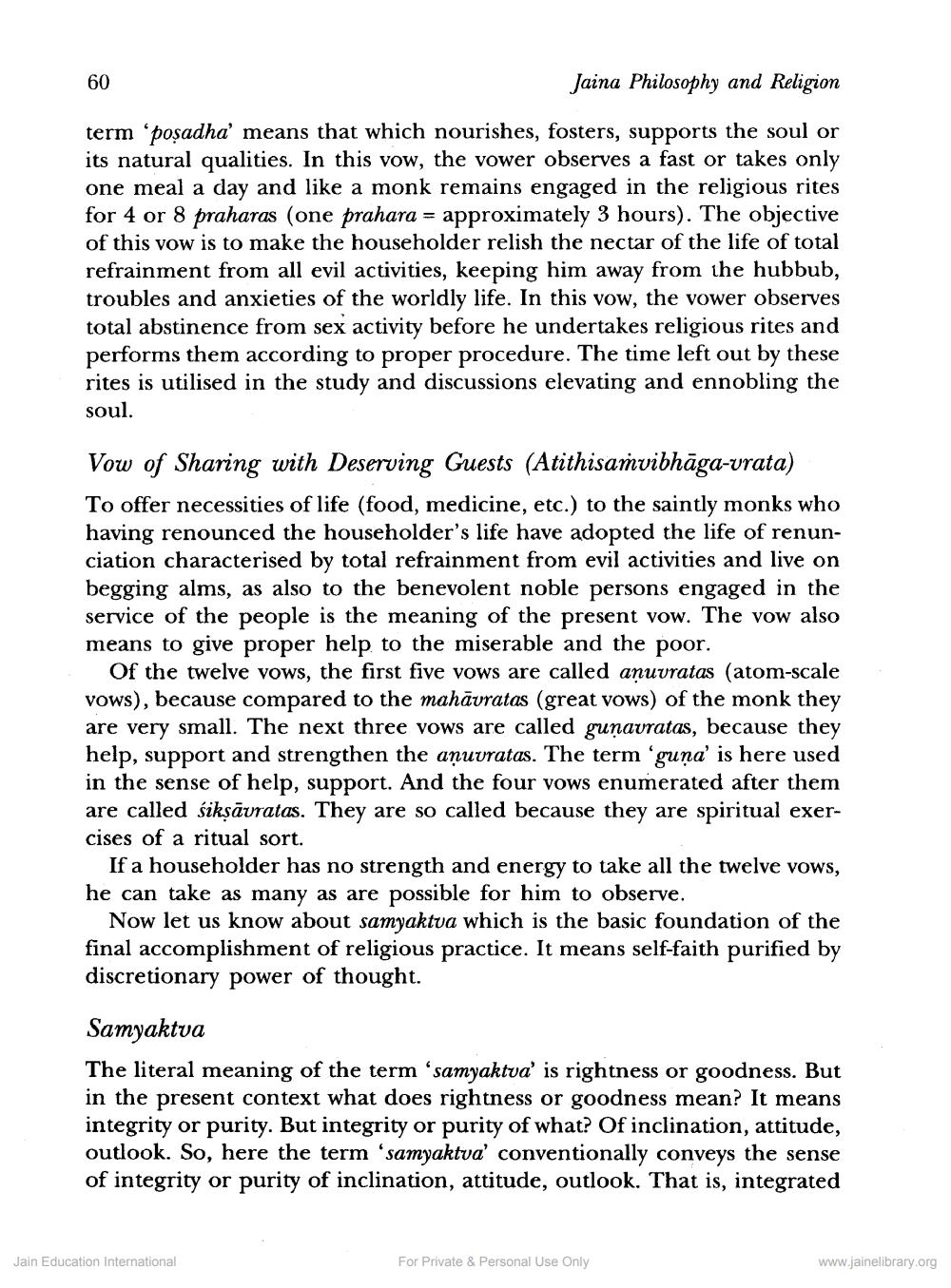________________
60
Jaina Philosophy and Religion
term 'posadha' means that which nourishes, fosters, supports the soul or its natural qualities. In this vow, the vower observes a fast or takes only one meal a day and like a monk remains engaged in the religious rites for 4 or 8 praharas (one prahara = approximately 3 hours). The objective of this vow is to make the householder relish the nectar of the life of total refrainment from all evil activities, keeping him away from the hubbub, troubles and anxieties of the worldly life. In this vow, the vower observes total abstinence from sex activity before he undertakes religious rites and performs them according to proper procedure. The time left out by these rites is utilised in the study and discussions elevating and ennobling the soul.
Vow of Sharing with Deserving Guests (Atithisaṁvibhāga-vrata) To offer necessities of life (food, medicine, etc.) to the saintly monks who having renounced the householder's life have adopted the life of renunciation characterised by total refrainment from evil activities and live on begging alms, as also to the benevolent noble persons engaged in the service of the people is the meaning of the present vow. The vow also means to give proper help to the miserable and the poor.
Of the twelve vows, the first five vows are called anuvratas (atom-scale vows), because compared to the mahāvratas (great vows) of the monk they are very small. The next three vows are called gunavratas, because they help, support and strengthen the aņuuratas. The term 'guņa' is here used in the sense of help, support. And the four vows enumerated after them are called śikṣāvratas. They are so called because they are spiritual exercises of a ritual sort.
If a householder has no strength and energy to take all the twelve vows, he can take as many as are possible for him to observe.
Now let us know about samyaktua which is the basic foundation of the final accomplishment of religious practice. It means self-faith purified by discretionary power of thought.
Samyaktva The literal meaning of the term “samyaktva' is rightness or goodness. But in the present context what does rightness or goodness mean? It means integrity or purity. But integrity or purity of what? Of inclination, attitude, outlook. So, here the term 'samyaktua' conventionally conveys the sense of integrity or purity of inclination, attitude, outlook. That is, integrated
Jain Education International
For Private & Personal Use Only
www.jainelibrary.org




